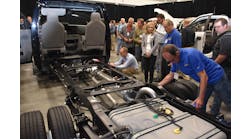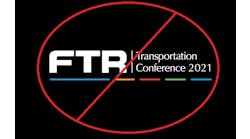‘Clean’ principles based on lean manufacturing designed to improve worker safety, morale
Organizations can create safer, healthier workplaces through the application of visible, comprehensive changes recommended by “Clean Practice” principles.
Indow, a clean-tech manufacturing business, has adapted Lean principles to prevent the spread of COVID-19 coronavirus among its employees by eliminating transmission vectors. The system it developed—which the company’s founder has dubbed “Clean,” after “Lean” manufacturing—provides a template for organizations across the country looking to rapidly and effectively reduce the risk of illness transmission to employees and customers.
In early March, with the largest U.S. outbreak of COVID-19 in Seattle just 170 miles north of the company’s facility, Indow CEO Sam Pardue’s concern about employee safety and the wider community prompted him to develop Clean Practice with his team.
The principles of Lean eliminate waste, quality problems, and inefficiencies in manufacturing and other business systems. Clean uses similar methods to reduce or eliminate disease transmission vectors in the workplace. The benefits are analogous to social distancing —reduced opportunities for the virus to spread. The goal at Indow is full workforce participation and zero COVID-19 transmissions.
Drawing from the Lean practice of ‘Visual Factory,’ the team divided the 20,000 square foot facility into zones and placed brightly colored stickers at high hand traffic ‘touchpoints’ like light switches and doorknobs. Zone captains created a cleaning schedule with every person in the organization covering one shift in each zone. The result: a system that effectively cleans all high-touch areas on a regular basis, with responsibility for work distributed across the staff.
Since Clean incorporates continuous improvement, the Indow team is moving beyond cleaning to eliminate disease vectors altogether. Among many changes, Indow removed doorknobs and added hooks to allow doors to be opened with forearms rather than fingers, eliminating high-touch potential illness transmission points.
Clean Practice is meant to complement aggressive social distancing and is not a substitute. Indow endorses an immediate, nationwide, month-long shutdown. Everyone can use the time away to develop Clean Practices and return to much safer workspaces.
For more information on the Indow Clean Manufacturing illness prevention system, including a free step-by-step guide to implementing the core principles, visit www.cleanpractice.org.
Core Principles of Clean Manufacturing
1 Create a plan.
2 Build trust through open communication and by sharing your plan.
3 Full buy-in. Everyone from the CEO to new hires participates.
4 Use Gemba Walks to inspect your facility for potential COVID-19 transmission vectors.
5 Implement Visual Factory by using easy-to-follow visual indicators and guides to reduce training time and reinforce proper practices.
6 PDCA Plan (establish a Plan and expected results), Do (implement plan), Check (verify expected results achieved), Act (review and assess; do it again).
7 Use Kaizen (continuous improvement) to improve upon first efforts. a. Innovate and collaborate.
8 Expand trust by extending protection to all your workers through a generous sick leave policy. This is critical to avoid a dangerous disease vector: sick employees coming to work because their families cannot survive without their wages.
9 Accountability.
10 Grow









